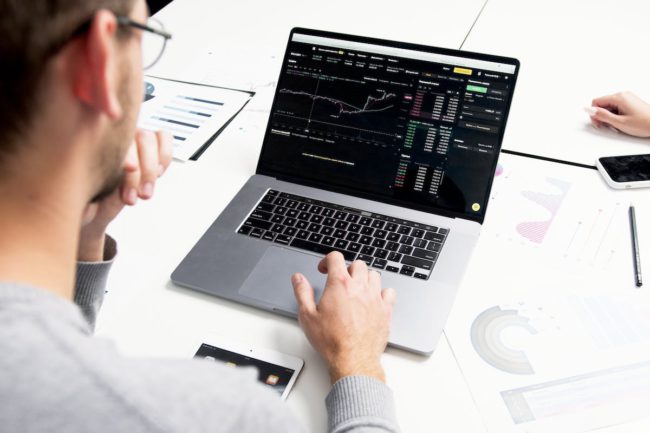Delving into forex trading is an exciting endeavour, offering an avenue to participate in the global financial markets. The foreign exchange market, or Forex, is the largest and most liquid financial market globally, boasting a daily trading volume surpassing $6 trillion. However, entering this domain demands a strategic approach, comprehensive knowledge, and a careful selection of the ideal Forex broker. This guide will provide an in-depth understanding of Forex trading and essential factors to consider when choosing a Forex broker.
Mastering Forex Trading
Forex trading involves simultaneously buying one currency while selling another to profit from exchange rate fluctuations. Unlike traditional stock markets, Forex operates round the clock, five days a week, owing to its global nature. Here’s a systematic approach to beginning your journey in Forex trading:
1. Educate Yourself: Before engaging in Forex trading, acquire a solid understanding of market dynamics, terminologies, and the factors influencing exchange rates. Various online resources, courses, and communities offer valuable insights for beginners.
2. Craft Your Trading Strategy: Forex trading accommodates various strategies based on individual risk tolerance and preferred trading styles. Whether it’s day trading, swing trading, or long-term investing, selecting the right strategy aligned with your goals is crucial.
3. Choose a Reliable Trading Platform: Selecting a trading platform offered by a reputable Forex broker is imperative. Ensure the platform is user-friendly, equipped with robust analytical tools, and provides efficient order execution, as it significantly influences your trading experience.
4. Practice with Demo Accounts: Most brokers offer demo accounts, allowing practice trading with virtual money. Leveraging this opportunity helps in testing strategies and getting comfortable with the platform before investing real funds.
5. Implement Risk Management: Effective risk management is fundamental. Only invest what you can afford to lose and consider utilizing stop-loss orders to minimize potential losses. Diversifying your trades spreads out risk exposure.
6. Control Emotions: Emotional responses can lead to impulsive decisions. Adherence to your trading plan, especially during market volatility, is crucial. Discipline and rationality play significant roles in successful trading.
7. Continuous Learning: The Forex market is dynamic and continually evolving. Staying abreast with the latest news and market trends is essential for adapting strategies.
8. Evaluate and Adapt: After each trade, analyze the results to discern successful and unsuccessful aspects. Learning from experiences is integral to improving as a Forex trader.
9. Start Small, Scale Gradually: Begin with a small investment to minimize potential losses. With experience and confidence, gradually increase your position size.
Selecting the Right Forex Broker

Choosing the appropriate Forex broker significantly impacts how to trade forex. It’s imperative to consider several key factors when seeking the ideal Forex broker:
1. Regulation and Compliance: Opt for brokers regulated by credible financial authorities. Regulations ensure adherence to standards, providing a secure trading environment.
2. Trading Costs: Pay attention to the broker’s fee structure, including spreads, commissions, and overnight charges. Lower trading costs enhance long-term profitability.
3. Trading Platforms: Choose brokers with user-friendly and feature-rich trading platforms. Platforms like MetaTrader 4 or 5 are popular for their versatility and effectiveness.
4. Diverse Currency Pairs: A wide range of currency pairs the broker offers allows for the exploration of different markets and strategies.
5. Leverage Responsibly: Leverage amplifies both gains and losses. Ensure the broker offers reasonable leverage options, adhering to regulatory guidelines.
6. Effective Customer Support: Access to responsive and knowledgeable customer support is invaluable. Technical issues or queries demand reliable assistance.
7. Execution Speed: Quick and reliable order execution, particularly for day traders, is pivotal. Delays can lead to missed opportunities.
8. Varied Deposit and Withdrawal Options: Brokers offering multiple deposit and withdrawal methods offer flexibility in managing funds.
9. Educational Resources: Brokers providing educational materials like webinars, articles, and tutorials support skill development, especially for beginners.
10. Reputation and Reviews: Prioritize brokers with positive track records. Research reviews to identify any red flags or complaints.
11. Demo Account Availability: Brokers offering demo accounts provide essential opportunities for practising strategies and becoming familiar with their platform.
12. Market Research and Analysis Tools: Access to market analysis tools aids in making informed trading decisions.
In conclusion, Forex trading presents an enticing opportunity in the global financial landscape. Success in this domain requires a sound understanding of the market, a well-defined strategy, and continuous adaptation to market trends. Additionally, choosing a suitable Forex broker significantly influences your trading experience. By meticulously considering factors such as regulation, costs, customer support, and available resources, traders can make informed decisions.

